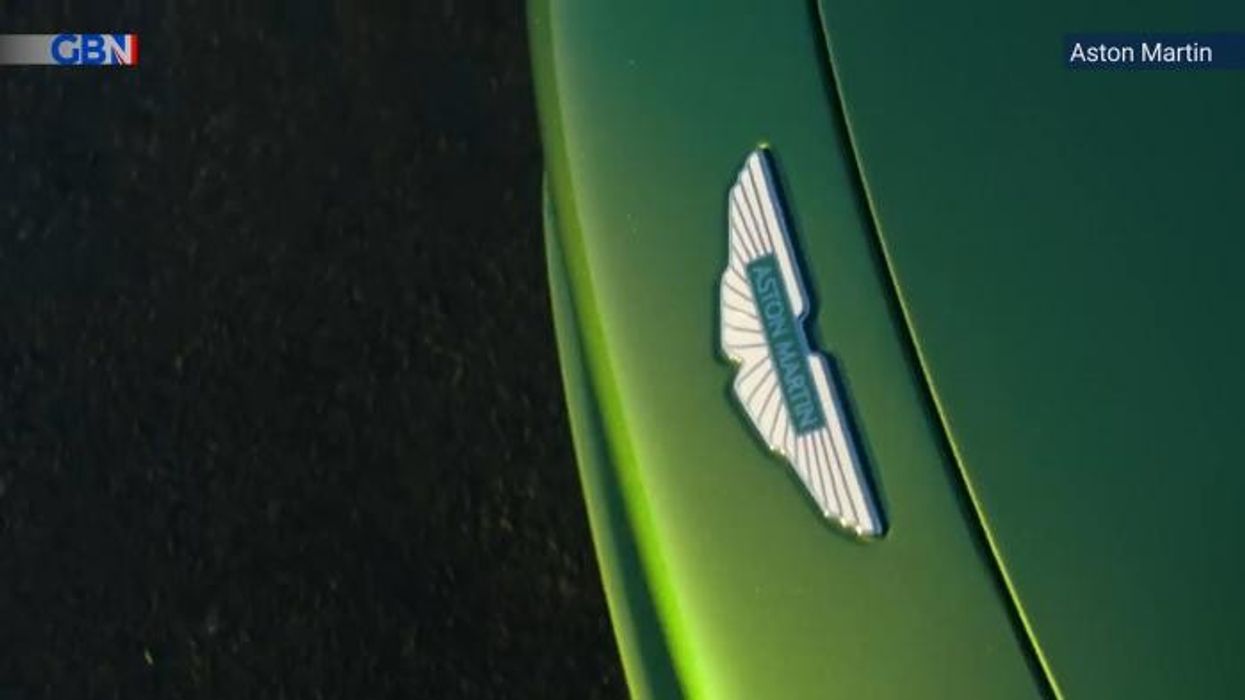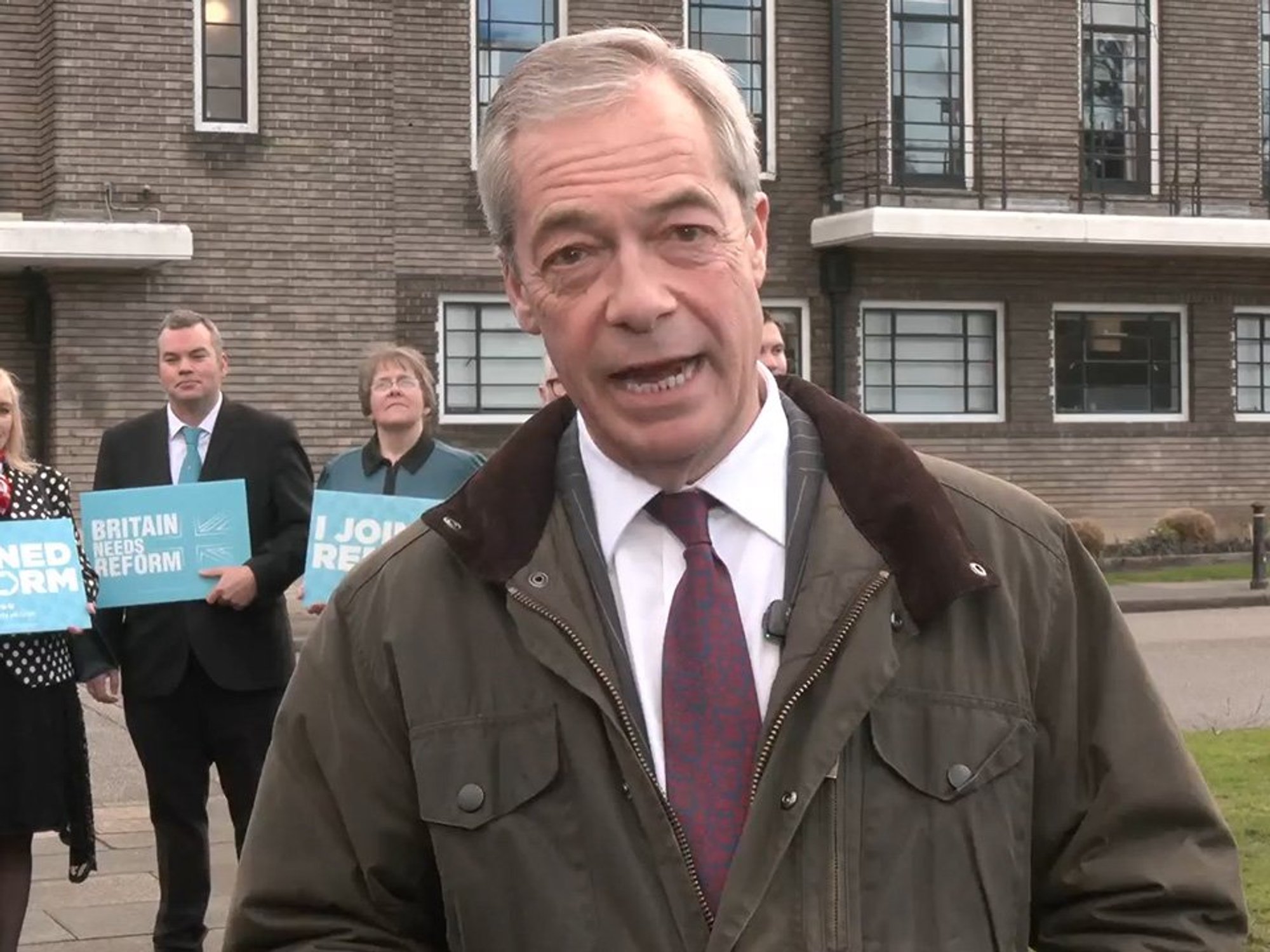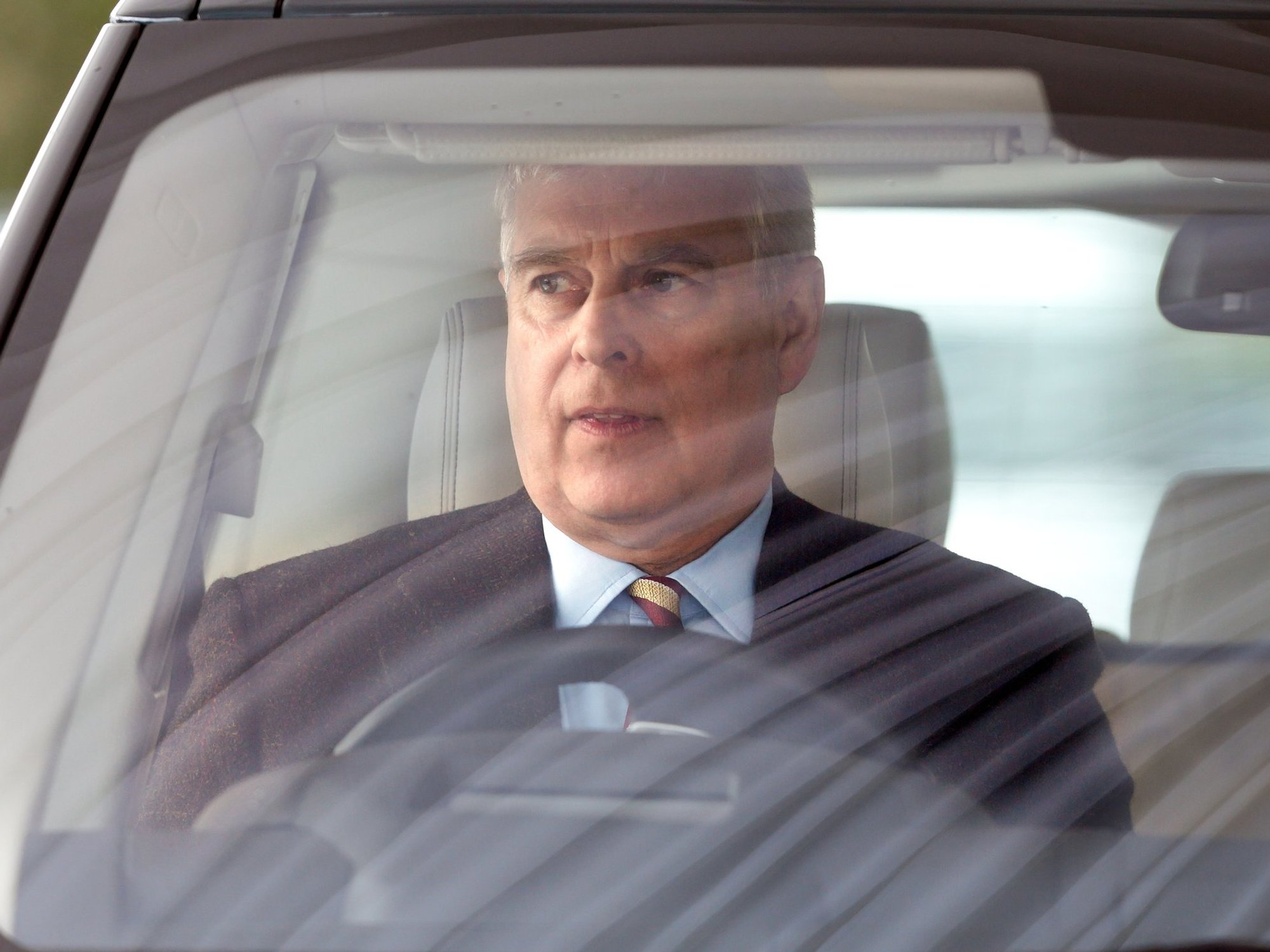Aston Martin boss addresses 'major challenges' with electric car switch and response to Trump tariffs

Aston Martin is expected to begin selling electric vehicles in the 'latter part of the decade'
Don't Miss
Most Read
The boss of Aston Martin has spoken about the future of the legendary British brand, noting difficulties with the switch to electric vehicles and the impact of President Donald Trump's US tariffs on foreign vehicle imports.
In the 2024 financial year, Aston Martin sold 6,030 vehicles, a nine per cent decrease compared to the previous year. Despite this, the brand's revenue remained steady, with just a three per cent drop, worth £1.584billion.
Speaking at the International Automotive Summit, held by the Society of Motor Manufacturers and Traders (SMMT), Adrian Hallmark, CEO of Aston Martin Lagonda, commented on the future of how the brand would operate, especially in the face of global instability.
He noted that luxury car brands have been forced to transition in the years following the pandemic, given the "reverse of globalisation".
Do you have a story you'd like to share? Get in touch by emailing motoring@gbnews.uk
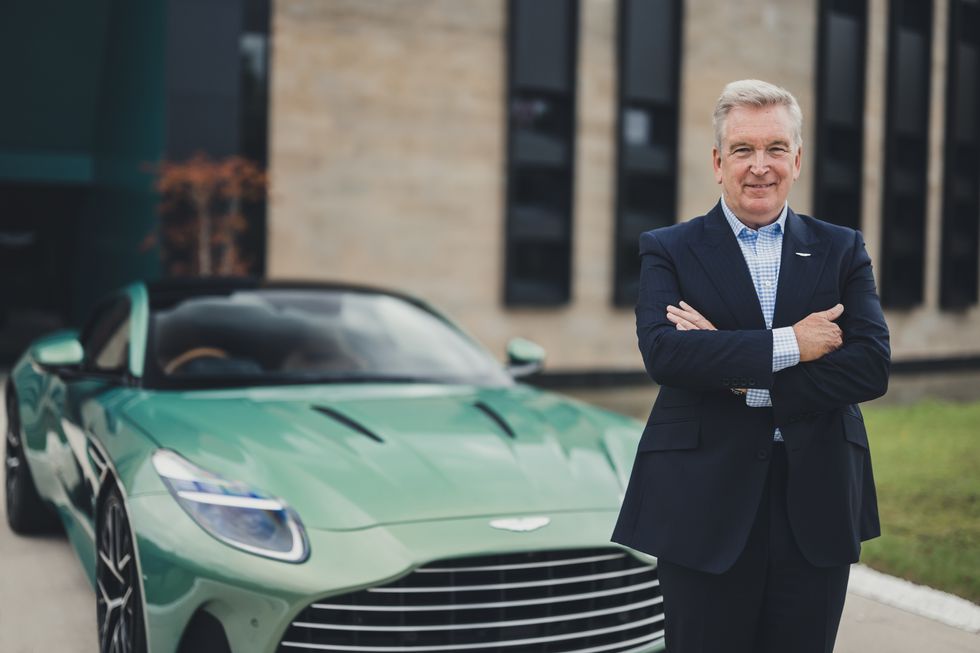
Aston Martin Lagonda CEO Adrian Hallmark spoke at the International Automotive Summit earlier this week
|ASTON MARTIN
Alongside this, he highlighted how different countries wanted different things, including technology, safety systems and choices of drivers.
One example given was Advanced Driver Assistance Systems (ADAS), with regulations differing between China, Europe and the United States. He said these "fragmentation of rules" can lead to stretched supply chains.
He described the divergence among regulations as "highly costly", while tariffs brought uncertainty, even if the UK was "less worse off than the European Union".
Hallmark, who was previously Chairman and CEO of Bentley Motors, said Aston Martin anticipated that tariffs would be introduced and made the decision not to ship cars to the United States between April and June.
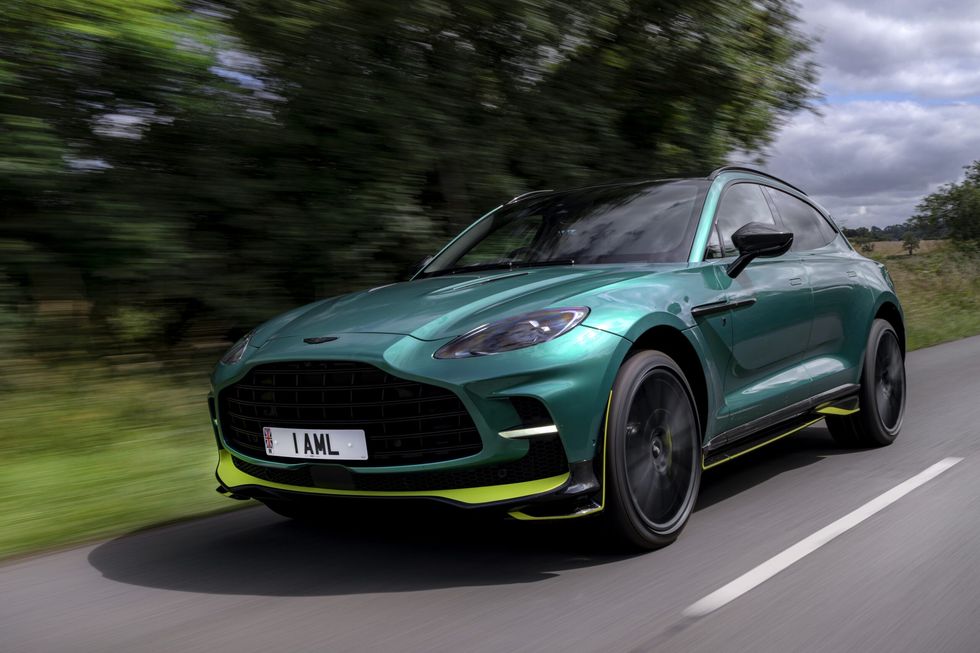 Aston Martin said it would limit exports to the US in response to Donald Trump's tariffs | ASTON MARTIN
Aston Martin said it would limit exports to the US in response to Donald Trump's tariffs | ASTON MARTINThe tariffs, which will come into effect from June 30, will see Aston Martin invoice three months of sales in 24 hours. Prior to this, the brand had "half of ideal stock" left in the United States.
When in place, manufacturers in the UK will pay a tariff of just 10 per cent, rather than the effective rate of 27.5 per cent introduced by President Donald Trump on Liberation Day at the start of April.
Following extensive negotiations between the UK and the US, Sir Keir Starmer and Donald Trump held a phone call to mark the completion of the landmark deal, with a quota of 100,000 vehicles as part of the settlement.
Hallmark added that the European trade deal, which has been dubbed a reset, was a "minor improvement", but stated that the Indian trade deal was more interesting for the brand.
LATEST DEVELOPMENTS:
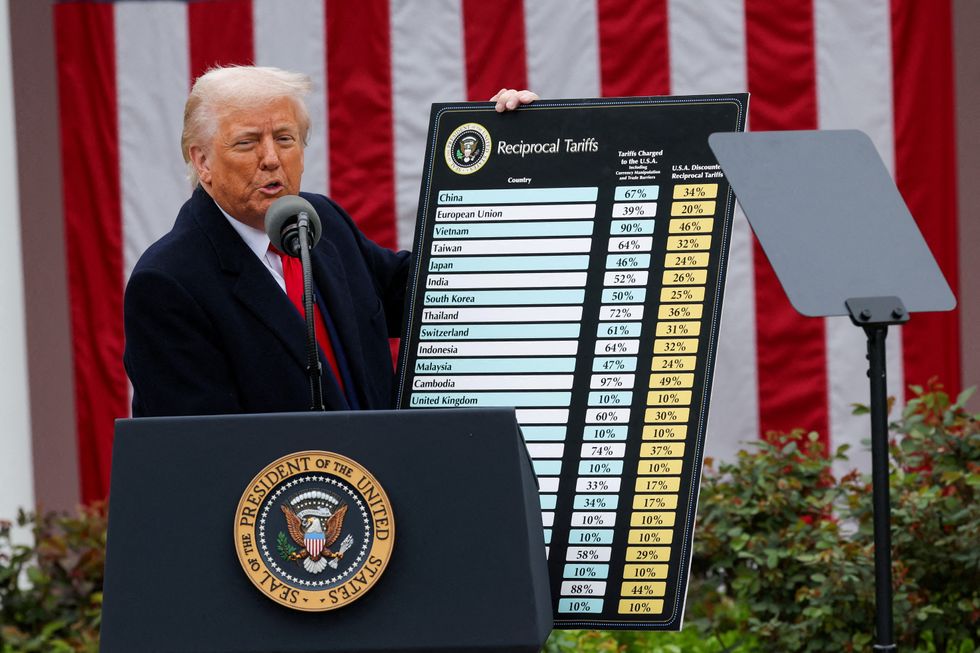
Aston Martin amended its tactics prior to Donald Trump introducing auto tariffs in April
| REUTERSIndia's middle class is growing at a rapid rate, boosting the demand for premium and luxury vehicles, which was "very suppressed", although now auto makers are seeing an acceleration in interest from prospective buyers.
While the emerging market could become a new battleground for luxury vehicles, like the Middle East has become in recent years, India has a 90 per cent tariff on foreign premium cars, with Hallmark saying any reduction would be welcomed.
Aston Martin, like all major manufacturers, is in the process of switching away from internal combustion engines and towards zero emission vehicles, regardless of whether consumer demand is there or not.
According to reports in 2019, the Gaydon-based manufacturer had planned to have James Bond ride in an electric Aston Martin in the 007 blockbuster No Time To Die, although the rumoured Rapide E never made an appearance on the silver screen.
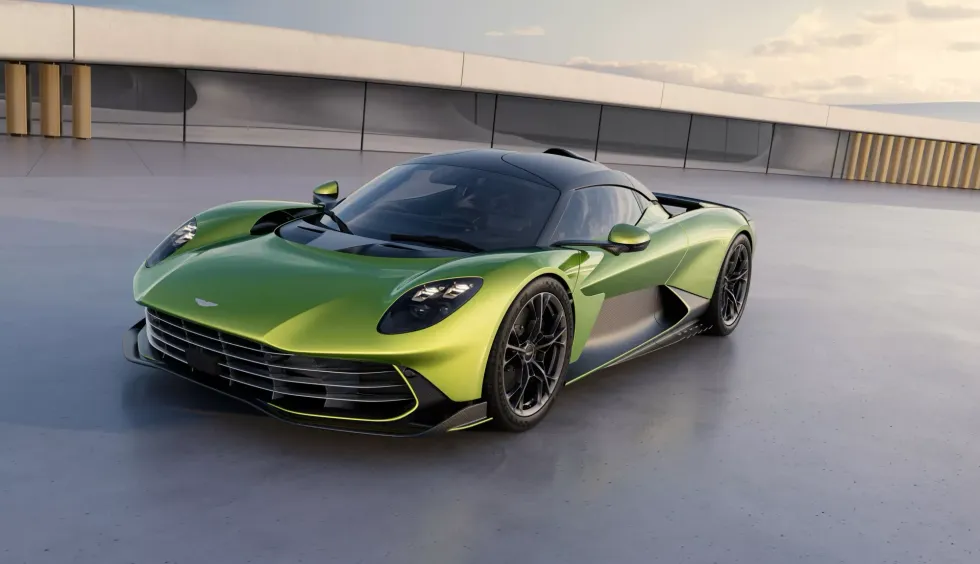
The Valhalla is Aston Martin's first-ever mid-engine PHEV hybrid supercar
|ASTON MARTIN
It has since delayed electric plans again, with Aston Martin saying it would come in the "latter part of this decade". Hallmark stated that building a car takes at least five years, and such a revolutionary change from ICE to EV could take longer, thanks to the new powertrains and battery technology included in the project.
The CEO said it was difficult for brands to make the move to electric, especially since different markets have varying targets. Some countries, including the UK, will ban the sale of new petrol and diesel cars from 2030, while others, like European Union nations, have a deadline five years later. Some have further targets of 2040 or no phase-out date at all.
This has led brands to consider whether to align themselves with targets in the country where they manufacture or leave a market if they want to continue to develop internal combustion engine vehicles.
In this case, manufacturers, including Aston Martin, may have to bear the cost of making electric vehicles, while others may focus primarily on petrol and diesel models in the coming years.
Aston Martin is one of four premium luxury brands in the UK, alongside Rolls-Royce, McLaren and Bentley, and one of only six in the world, when accounting for Lamborghini and Ferrari.
Hallmark acknowledged "major challenges" with the decision of when to launch an electric car, alongside how to set themselves apart from rival brands, noting that they may have to make them "more exciting, colourful and dynamic".
He described a "risk assessment" that needed to be done regarding whether the brand should develop technology that is totally flexible.
This has been seen across Europe, with countries calling for more regulation of low-carbon e-fuels that could see manufacturers continue with internal combustion engines, while also lowering emissions.


